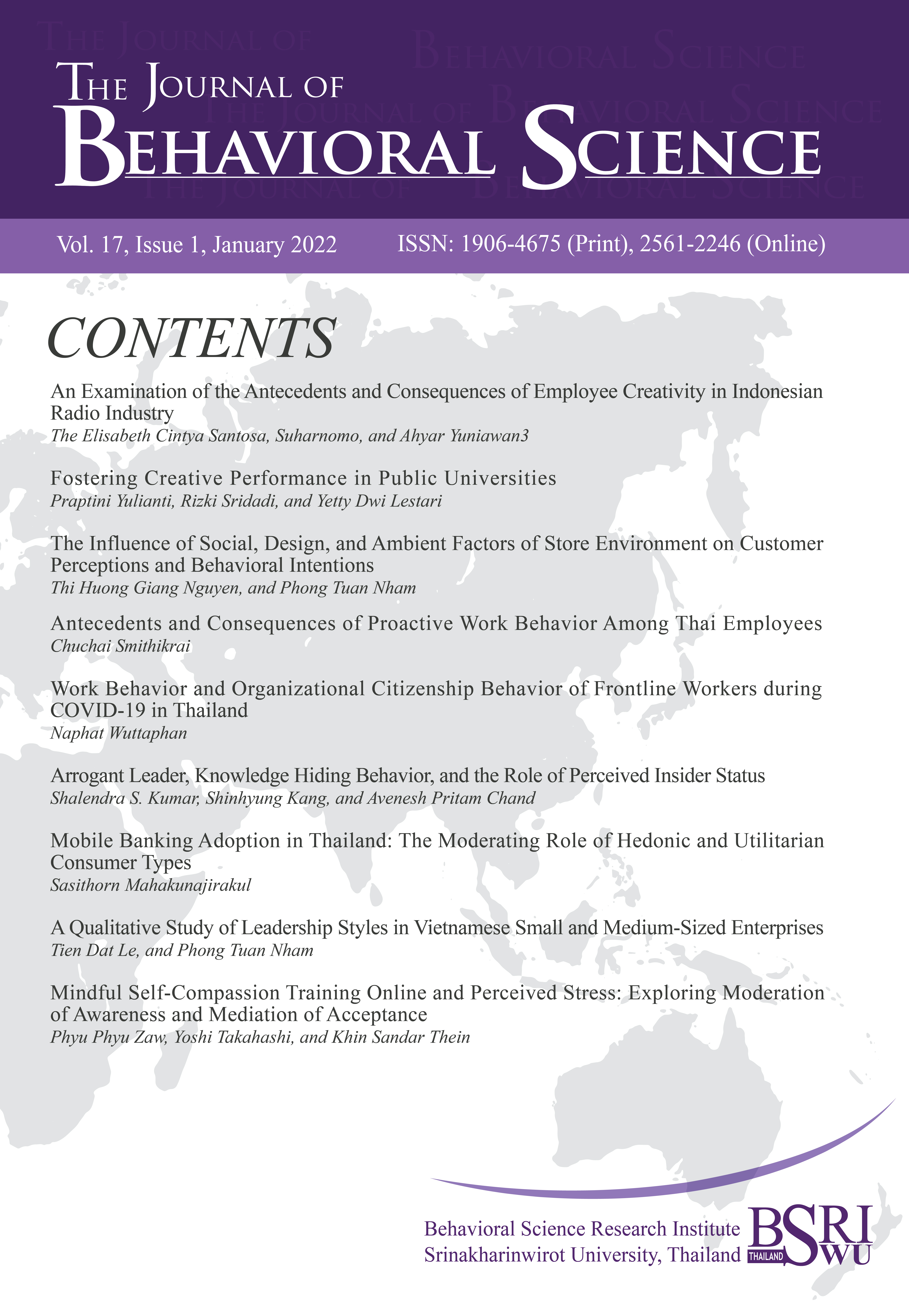Work Behavior and Organizational Citizenship Behavior of Frontline Workers during COVID-19 in Thailand
Main Article Content
Abstract
The outbreak of COVID-19 generated a negative impact on the psychological wellbeing of frontline public health workers due to a shortage of staff and supplies. This research investigated the effect of the team environment, personal characteristics, work environment and psychological capital on work behavior and organizational citizenship behavior during COVID-19 pandemic. The participants were 816 frontline public health workers in the northern part of Thailand. The findings revealed that the 2 models had an acceptable fit, chi-square = 293.00, df = 273, p = .19, CFI = 1.00, NNFI = 1.00, GFI = .97, AGFI = .96, RMSEA = .00 and = 1.07, and chi-square = 297.83, df = 274, p w= .15, CFI = 1.00, NNFI = 1.00, GFI = .97, AGFI = .96, RMSEA = .01, and = 1.09. The results indicated that team environment had direct effects on psychological wellbeing (β = .42, p = .05), work behavior (β = .91, p = .05), and OCB (β = .92, p = .05). Furthermore, personal characteristics had direct effects on psychological wellbeing (β = .66, p = .05), work behavior (β = .90, p = .05), and OCB (β = .92, p = .05). These findings suggest that strengthening personal positive behavior could lead to positive work and team environment that could enhance an individual’s psychological wellbeing.
Downloads
Article Details

This work is licensed under a Creative Commons Attribution-NonCommercial-NoDerivatives 4.0 International License.


